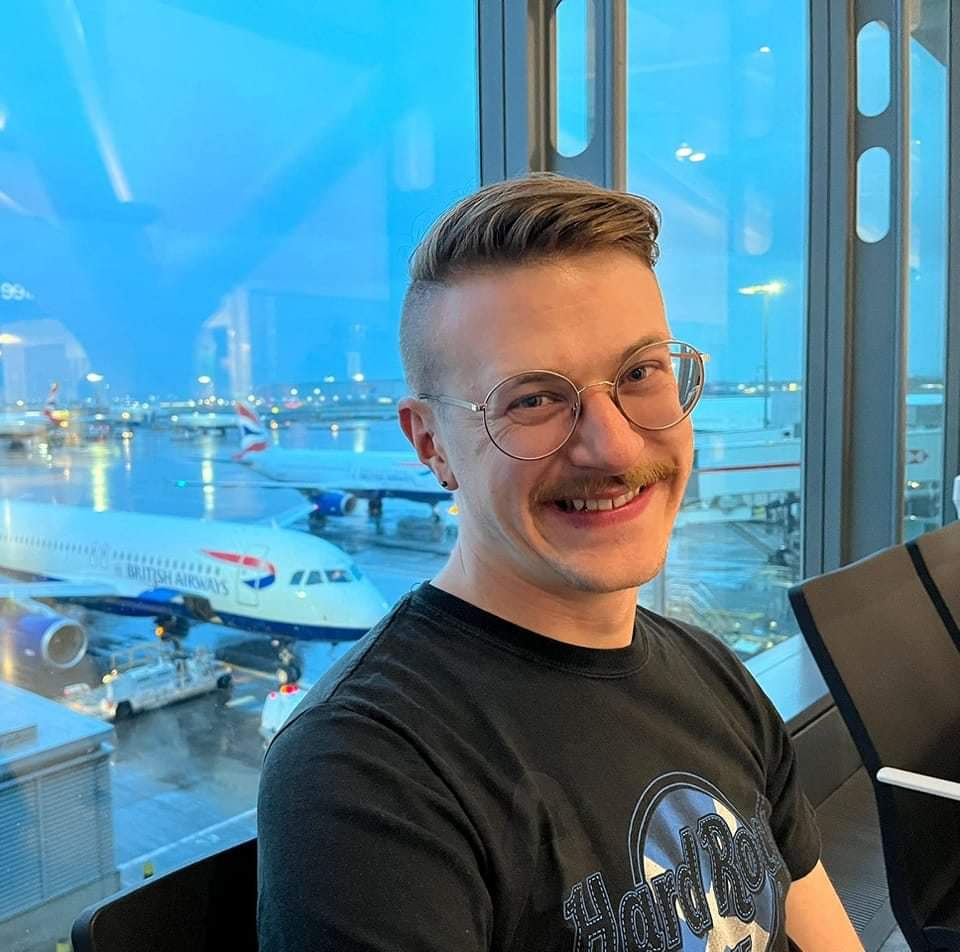Parental Leave Isn’t Just for Moms: A Father’s Perspective
Becoming a parent is one of life’s most powerful experiences. It’s hard to put into words - the joy, the overwhelm, the love. You really have to live it to understand it.
Some of the best moments in life happen when you’re with your child: playing, laughing, comforting each other. But to truly share those moments, there’s one thing you need: time together.
 |
|---|
| Photo by Ante Hamersmit on Unsplash |
And yet, here’s the strange part: even today, in much of the Western world, childcare is still mostly seen as a mother’s job (unless you’re in the Nordics - they’re already way ahead).
In this article, I want to share what it was like to take parental leave as a dad: what I learned, what surprised me, and why I think more fathers should do it.
Framework conditions
Becoming a parent is easy
Being a good parent is more difficult.
So is understanding the rules and laws around childcare and concepts for parental leave. They are very different worldwide.
In the US (as far as I’ve heard) parental leave is often very short as mothers get only 12 weeks off (and that’s often without payment).
In most European countries this is different.
Time for parental leave is paid and parents can take off multiple months. In the country I live in, mothers get off (with full payment) two months before and after giving birth. After that, there are different options for parental leave, and being on parental leave for a year is quite common.
During this time social security pays the parent staying at home a monthly income (depending on the income of the last couple of years).
But unlike in the Nordic countries, there is no big incentive (there is a small one though) that time for parental leave is split evenly between mum and dad. Therefore, mostly women are going on parental leave.
Still, I consider myself very fortunate living in Europe as the decision to go on parental leave wasn’t an economic one at all.
My parental leave
Altogether I’ve been 3 months off after my daughter’s birth. One month directly after her birthday and two months after her first birthday.
In the country I live in you even have the right by law to take this time for parental leave. But I didn’t need to enforce this as the company I work for and my boss were open to letting me go on parental leave.
I didn’t stop working altogether during that time. I worked a couple of hours each week (just checking emails, making approvals, and staying updated).
So now that you know my framework conditions, let me share my experiences.
What surprised me: more intense than I thought
Being the main caregiver for my one-year-old was more intense than I thought: in both directions emotionally and physically.
The thing I was most looking forward to was having fun together: playing with dolls, clamping bricks, reading children’s books or just making up our own games.
And yes, it is great. Making her smile and learn something new is truly a great feeling.
From an emotional point of view, there was the whole spectrum: from having outbursts of laughter after a tickle attack to crying because she missed her mum we had everything.
And being there for her in all these moments was actually the greatest experience during my whole parental leave.
From a physical point of view, I’ve to admit that it was significantly more intense than I’d first imagined doing all the cooking, stroller-driving, and diaper-changing. And all while being slightly sleep-deprived.
But, don’t get me wrong.
I did all this also during the time my wife has been on parental leave. However, being on my own with my child for 10+ hours at once was just something I hadn’t experienced before (just occasionally a handful of hours).
And I am so happy I experienced it.
Not only can I better understand now what my wife accomplishes every day (and that’s very impressive), but it also increased the bond between my daughter and me a lot as she learned: „Also dad can manage my daily needs.”
Stats of 1 work-week in parental leave
To give the physical intensity more clarity I want to share some stats:
- For the first 6 weeks, my daughter just slept in the stroller and she had two naps a day. That meant going for a walk with the stroller twice per day for about 1.5 hours / 10.000 steps each. Within a workweek, I accumulated about 15 hours and 100.000 steps of stroller-driving.
- 10 meals cooked and 30+ snacks prepared.
- About 40-50 diapers changed.
- 15-20 outfit changes.
- Managing the household (cooking, doing the laundry, cleaning, …) while simultaneously keeping an eye on my daughter so that she wouldn’t do something dangerous (as all toddlers constantly want to do …).
What my parental leave taught me
Take your time
Sometimes I am a perfectionist. And I have a competitive mindset. These two traits made me think that I have to be the best stay-at-home dad imaginable already in the very first week.
But transitions need time.
I was fortunate that my daughter made it quite easy for me in my first week at home with her. She missed her mum, but she didn’t have many crying outbreaks and most of the time I could comfort her easily.
But there were a couple of days with my wife in home office where my daughter just didn’t want to stay with me. She recognized that her mum was there, but didn’t understand that she had to work and couldn’t spend time with her.
At first, it was frustrating to me as I felt like a failure (why doesn’t she want to stay with me and just want her mum).
But the frustration was more about me and not so much about her. At this moment she just needed her mum and that’s ok. I learned that after some time.
At the beginning, I couldn’t read her that well, but after a couple of weeks, I learned to understand her much better. It just took some time to get to know her on this new level.
But things changed after the first weeks. We really grew together and she didn‘t miss her mum as much anymore. I am not sure if I became the best stay-at-home dad, but I think I did a decent job and my daughter and I had a really great time together.
Multitasking
This is a skill every parent should have.
I have to admit: I am terrible at it.
I do much better when I focus on one thing at a time.
However, with a one-year-old, this isn’t possible. There are moments when you have to carry the laundry in one hand, open a door, and simultaneously have to watch out that she doesn’t grab the vase on the board or does a backflip in your arms.
Also, diaper changing needs you to multitask (more than I thought). Especially if the child suddenly decides to stand up on the changing table while you are unpacking a new tube of balm.
And the premier class: emptying the dishwasher. I didn’t imagine it to be that difficult, but trust me it is (several open drawers, the open dishwasher, and a child with lightning speed juggling fragile ceramics).
Appreciation of me-time
Every minute I can spend with my daughter is magical. And I am so grateful for the time I could spend with her in the past couple of months.
If you aren’t a parent, you cannot imagine how much self-determined time you have as it converges to zero if you are a parent (or especially as a main caregiver).
The short time windows during nap time are filled with work you cannot do together and the evenings are also becoming shorter.
Still, I think that it is important to have some me-time. I appreciate it when my wife or the grandparents take care of my daughter and I can go for a run or focus completely on writing an article.
Recognizing needs
Caring for someone also means recognizing their needs, even if they cannot (or don’t want to) tell you. In that sense, I think that giving care to a baby or a toddler teaches you more empathy.
As communication isn’t as easy as with grown-ups you somehow need to read their facial expression or their minds or just try to put yourself into their shoes.
Anticipate future needs
I always liked planning.
Even before I became a dad, I enjoyed preparing lunch kits, EDC kits, or preparing my briefcase with what-if-items.
These skills came in handy when managing my daughter’s diaper backpack: there are just so many things you will need, could need, or would be happy to have brought with you when you are on the road, or at the playground.
The difference is that I didn’t just have to anticipate the what-ifs from my point of view, but (naturally) from her point of view. So, I definitely think that my planning skills have also increased.
Work more efficient
Studies show that parents often work more efficiently than non-parents. They finish the same tasks in a shorter amount of time.
Why?
I think it’s Parkinson’s Law at work here: if you have a limited amount of time (because the nap lasts for only 45 minutes) you just have to finish the task by then. The next time window won’t open until the evening.
During my time on parental leave things at my company worked out quite well. I am fortunate that I have a great team who manages a lot on their own. Being less available during my time in parental life highlighted that - thanks, team!
Why I think more fathers should do it
Time really does fly.
I used to roll my eyes when older people said that. But after becoming a dad, I get it. With a little one, every day brings something new: a smile, a word, a step. Blink, and the moment is gone.
That’s why it’s so important to slow down and be present.
Take the time.
Make memories. Be there. Not just in the evenings, not just on weekends, but really there.
And if you’re worried about falling behind in your career, let me tell you - I felt the same way. I thought I couldn’t possibly take more than two weeks off. But with remote work and flexible setups, it’s easier than ever to stay connected. More importantly, what you gain during parental leave goes beyond work. You build patience, empathy, multitasking skills - things no job can truly teach.
And things are shifting. More dads are stepping up. The world is slowly becoming more open, more equal.
Be part of that change.
Take the leave. You won’t regret it.
Final thoughts
These really are my final thoughts on parental leave, as I’m writing this during my last week of it.
Would I do it again?
Definitely.
Would I do it differently?
Yes.
If I could do it again, I’d take more time at the beginning to ease the transition between my wife and me as the main caregiver. And I’d make my parental leave a little longer — time passed so quickly.
A colleague of mine said something that stuck with me: “No one can take away the time you’ve spent with your daughter.” And this is so true. I’ll be forever grateful for having spent this time with her.
